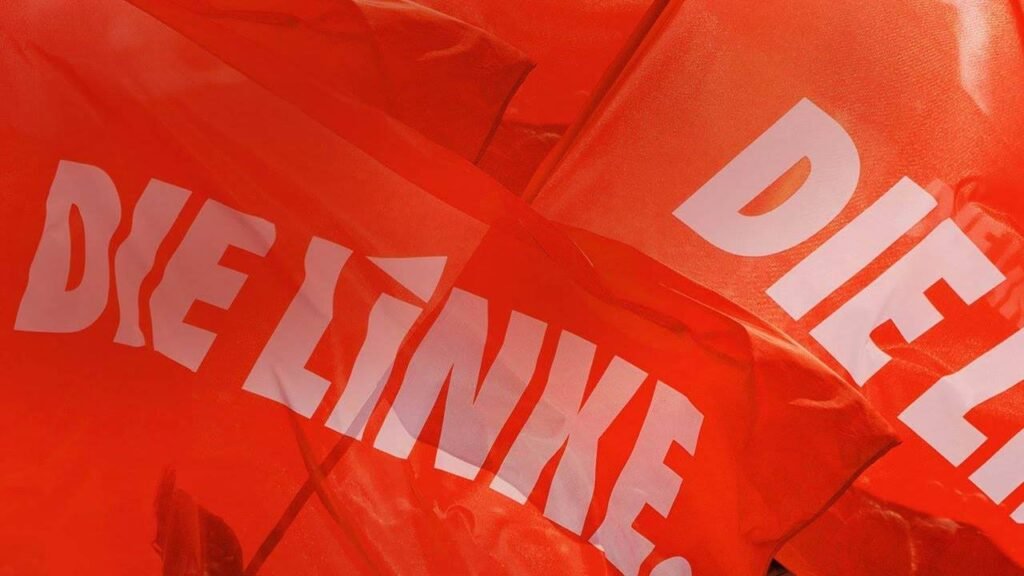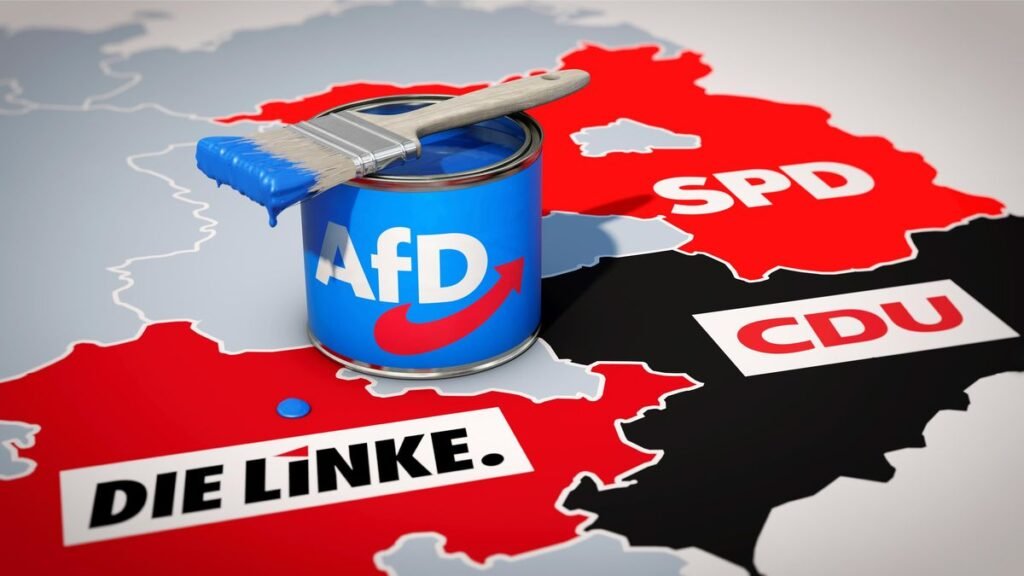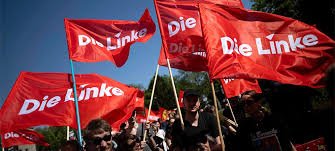The Decline of Germany’s Die Linke: From Beacon of the Left to a Party in Crisis
Once celebrated as a symbol of hope for the European left, Germany’s Die Linke (The Left) has seen its influence diminish dramatically. Founded in 2007 through a merger of the post-communist Party of Democratic Socialism (PDS) and a pro-labor breakaway from the Social Democratic Party (SPD), Die Linke initially emerged as a powerful political force. It championed issues of economic inequality, labor rights, and the injustices of German reunification. However, years of internal conflict, strategic missteps, and shifting political dynamics have left the party struggling to retain relevance.

A Promising Start
In its early years, Die Linke carved out a distinct political identity. The party offered a progressive alternative to the neoliberal policies of the SPD, particularly in opposition to the controversial Hartz IV welfare reforms that slashed unemployment benefits. With figures like Oskar Lafontaine—a former SPD finance minister who defected over these policies—Die Linke built a reputation as a staunch defender of workers’ rights. It pressured the German government into adopting a federal minimum wage and served as a vocal critic of austerity measures imposed during the Eurozone crisis.

This golden era saw Die Linke routinely garner around 10% of the national vote and become a dominant force in several eastern German states, where it addressed the grievances of disenfranchised youth, pensioners, and others left behind by reunification. The party’s dual strategy of engaging in parliamentary politics while supporting grassroots activism gave it a unique position as a bridge between social movements and formal politics.

Internal Divisions and the Wagenknecht Factor
Die Linke’s decline has been marked by infighting, much of it centering around Sahra Wagenknecht, a high-profile politician and former party leader. While Wagenknecht initially helped raise the party’s profile, her controversial views on immigration and her eventual defection to form a rival party, the Sahra Wagenknecht Alliance (BSW), have left Die Linke fractured.
Wagenknecht’s rhetoric on immigration—often framed as concern over competition for jobs and housing—alienated many younger, urban, and socially progressive activists within the party. Critics labeled her views as reactionary, accusing her of pandering to far-right narratives. Yet, Wagenknecht retained a strong following, particularly among voters in eastern Germany, where her calls for economic security resonated.
Her departure in early 2024 dealt a significant blow to Die Linke, as her new party quickly surpassed it in electoral support, particularly in regions where Die Linke had historically been strong. For many voters, Wagenknecht was seen as the party’s core, leaving Die Linke struggling to redefine its identity.

Challenges in a Changing Political Landscape
Germany’s evolving political landscape has also contributed to Die Linke’s struggles. The rise of the far-right Alternative für Deutschland (AfD) has reshaped voter dynamics, particularly in eastern Germany, where AfD has made significant inroads by capitalizing on dissatisfaction with reunification’s outcomes. While Die Linke once positioned itself as the voice of disenfranchised working-class communities, the AfD has now claimed much of that space, framing itself as the anti-establishment option.
At the same time, Die Linke has struggled to articulate clear positions on critical issues such as the COVID-19 pandemic, the war in Ukraine, and Germany’s role in global conflicts.
The party’s long-standing opposition to arms sales, once a moral cornerstone, has been overshadowed by accusations of neutrality in the face of Russian aggression. Similarly, Die Linke’s equivocation on Palestine and other international issues has alienated potential supporters.
Structural Weaknesses and Leadership Gaps
Die Linke’s governance structure, designed to accommodate a broad coalition of leftist ideologies, has often impeded decisive action. The party’s leadership has historically prioritized inclusivity over discipline, avoiding authoritarian measures for fear of being labeled as “Stalinist.” While this approach has preserved internal diversity, it has also left Die Linke ill-equipped to manage high-profile dissent or set a unified agenda.
Efforts to rejuvenate the party have shown limited success. Recent leadership changes, including the election of cochairs Ines Schwerdtner and Jan van Aken in 2023, have emphasized reconnecting with working-class voters and addressing their concerns through grassroots canvassing. However, with snap national elections scheduled for February 2024, Die Linke faces an uphill battle to regain momentum.

The Broader Implications
Die Linke’s decline has broader consequences for the German left and its ability to counter neoliberal and far-right narratives. In the 2000s, the party successfully challenged the SPD’s drift toward neoliberalism, offering a progressive alternative that resonated with disillusioned voters. Today, however, that space has narrowed, with Die Linke struggling to differentiate itself from the Green Party and other progressive forces.
Meanwhile, the AfD’s growing dominance in former eastern states underscores the urgency of rebuilding a strong leftist presence. While AfD’s gains primarily draw from right-leaning voters and abstainers, its rise represents a failure to address the structural inequalities and social discontent that Die Linke once championed.


To reclaim its relevance, Die Linke must confront the root causes of its decline. This includes articulating a coherent economic vision that addresses workers’ concerns, strengthening internal discipline, and rebuilding trust with its base. The party must also navigate the tensions between its activist roots and its parliamentary ambitions, finding a balance that allows it to influence both the streets and the Bundestag.
While the road ahead is fraught with challenges, Die Linke’s legacy as a voice for social justice and equality remains an asset. If it can recapture the insurgent spirit that once defined it, the party may yet play a vital role in shaping Germany’s political future. The stakes are high—not just for Die Linke, but for the broader struggle to build a left worthy of its name.

